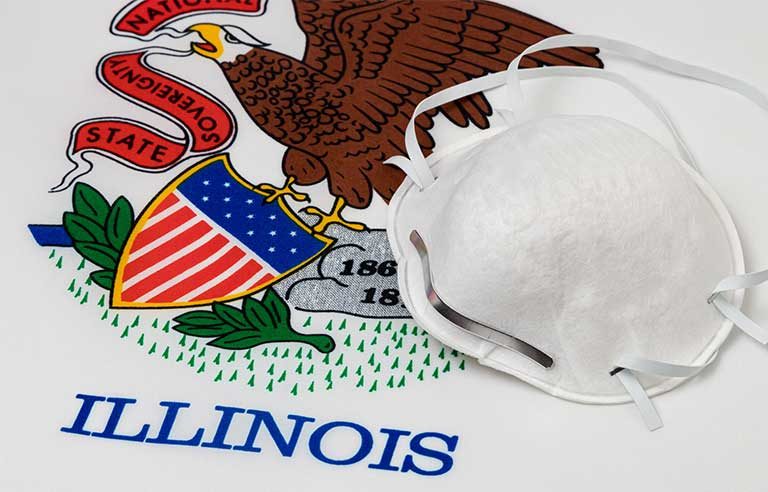COVID-19 pandemic: Illinois publishes guidelines for temp workers

Springfield, IL — New guidance issued by the Illinois Department of Public Health is intended to help staffing agencies and employers protect temporary workers from exposure to COVID-19.
Guidance for Staffing Agencies and Temporary Workers During Phase 4 of the Restore Illinois Plan provides answers to the following questions:
- Are staffing agencies required to provide information regarding COVID-19 workplace safety?
- Do temporary workers need to receive COVID-19 safety training?
- Are staffing agencies required to provide personal protective equipment, such as face coverings?
- What safety measures should staffing agencies take when providing transportation to temporary workers or when contracting with a third party to do so?
- What COVID-19 screening procedures should staffing agencies implement?
- What should a staffing agency do if a worker reports symptoms of COVID-19 or tests positive for COVID-19?
On June 26, Gov. JB Pritzker (D) signed Executive Order 2020-43, which includes a requirement that employers – including staffing agencies – provide face coverings to all workers who aren’t able to maintain 6 feet of space from other people. In addition, employers must prominently display IDPH and Office of the Illinois Attorney General guidance on workplace safety during the COVID-19 pandemic.
| Sign up for Safety+Health's free monthly email newsletters and get the news that's important to you. |
IDPH notes that based on the Illinois Day and Temporary Labor Services Act of 2000 (820 ILCS 175), staffing agencies must provide temporary workers with a notice of information on the nature of work to be performed, as well as the types of equipment, protective clothing and training required for the task. Accordingly, the notice should include any worker needs related to the pandemic at the time of a new assignment or when an existing assignment changes.
The document also covers how workers can report an unsafe workplace, protections against retaliation for reporting safety issues, and steps to take if they experience COVID-19 symptoms or test positive for the illness.
Post a comment to this article
Safety+Health welcomes comments that promote respectful dialogue. Please stay on topic. Comments that contain personal attacks, profanity or abusive language – or those aggressively promoting products or services – will be removed. We reserve the right to determine which comments violate our comment policy. (Anonymous comments are welcome; merely skip the “name” field in the comment box. An email address is required but will not be included with your comment.)

